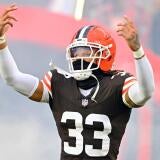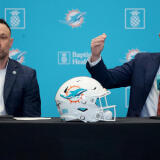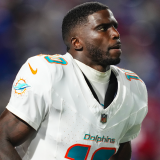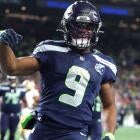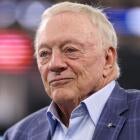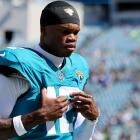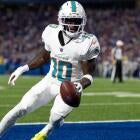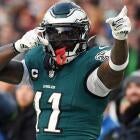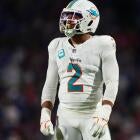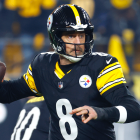
Azeez Al-Shaair suspension: NFL weighed banning Texans LB for rest of regular season for Trevor Lawrence hit
Data shows QB slides have declined 50% over the past six seasons
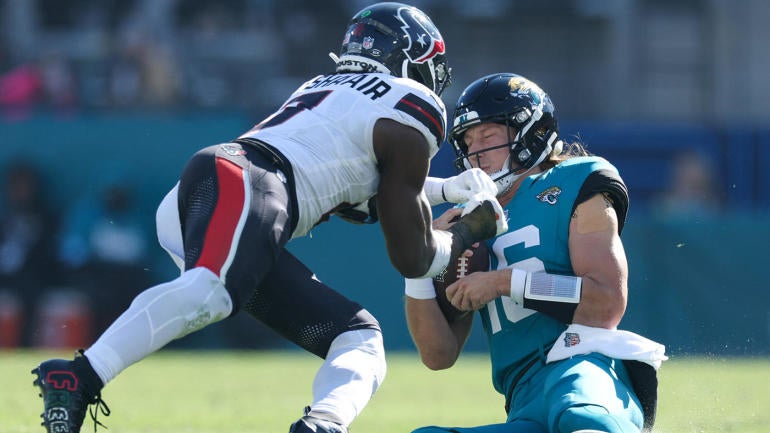
The NFL suspended Houston Texans linebacker Azeez Al-Shaair for three games for his blow to the head on a sliding Trevor Lawrence last week, and on Wednesday night that suspension was upheld upon appeal. Al-Shaair will miss Houston's games against the Dolphins, Chiefs and Ravens, and he's eligible to return in the regular-season finale against the Titans. But he was nearly done for the season.
Sources say the league initially wanted to suspend Al-Shaair for four games before deciding on three. The hit took place with more than four minutes left in the second quarter, and Al-Shaair was ejected for the remainder of the game. That was effectively a three-and-a-half game suspension for the linebacker, with three games of it being unpaid.
Jon Runyan, the NFL's VP of football operations, gave Al-Shaair a written tongue-lashing in a letter that was released publicly Tuesday morning.
"Your lack of sportsmanship and respect for the game of football and all those who play, coach, and enjoy watching it, is troubling and does not reflect the core values of the NFL," Runyan wrote. "Your continued disregard for NFL playing rules puts the health and safety of both you and your opponents in jeopardy and will not be tolerated."
Before the suspension, Al-Shaair posted an open letter apologizing for the hit. According to a source, Al-Shaair wrote his apology letter himself and without the aid of any PR team. That apology, along with the support of Texans GM Nick Caserio, wasn't enough to reduce his suspension upon appeal with Ramon Foster, the NFL-NFLPA jointly appointed hearing officer who presided over the virtual appeal Wednesday.
The Jaguars placed Lawrence on injured reserve this week. Though he's in concussion protocol, the IR move was more directly related to the surgery he'll have on his non-throwing shoulder. Because practicing is part of the five-step return-to-play protocol, it may be unclear just how long Lawrence would have been in the protocol under typical circumstances.
Discussion around players -- notably quarterbacks -- sliding and the protections granted to them is not expected to take place at next week's league meetings, though any team owner can raise any topic at any given meeting.
Sources indicate there's no internal issue with how the rules are written. Quarterbacks outside the pocket are regularly told to run at their own risk, and clearly the penalties are severe for defensive players who make contact to the head and neck area of a sliding quarterback. Additionally, defining what exactly constitutes the beginning of a slide could be difficult to write.
"When a runner slides feet or head first or simulates sliding, the ball is dead the instant he touches the ground with anything other than his hands or his feet, or begins to simulate touching the ground," reads the NFL rulebook. "Defenders are required to treat a sliding runner as they would a runner who is down by contact. A defender must pull up when a runner begins a slide. This does not mean that all contact by a defender is illegal. If a defender has already committed himself, and the contact is unavoidable, it is not a foul unless the defender makes forcible contact into the head or neck area of the runner with the helmet, shoulder, or forearm, or commits some other act that is unnecessary roughness.
"A runner who desires to take advantage of this protection is responsible for starting his slide before contact by a defensive player is imminent; if he does not and waits until the last moment to begin his slide, he puts himself in jeopardy of being contacted."
Slides have actually been on the decline in recent years. The NFL's competition committee was presented in the offseason with data showing quarterback slides being down nearly 50% over the past six years.
Some of that has to do with the type of quarterback in today's game. On average, quarterbacks are shorter, lighter and faster today than in recent years. This has led to quarterbacks who are both able to avoid hits as well as those who are able to get out of bounds better.
The NFL has seen more scrambles and scramble yards along with a higher scramble rate and sack rate through the first 13 games of this season than in the same time span in the past five years.
The NFL is also playing more two-high safety defenses, so defenders aren't farther from the line of scrimmage than before. That has, in some cases, opened up more rush lanes for quarterbacks.
As one source said as a word of warning for quarterbacks: "You can't rely on the defender to protect you."



